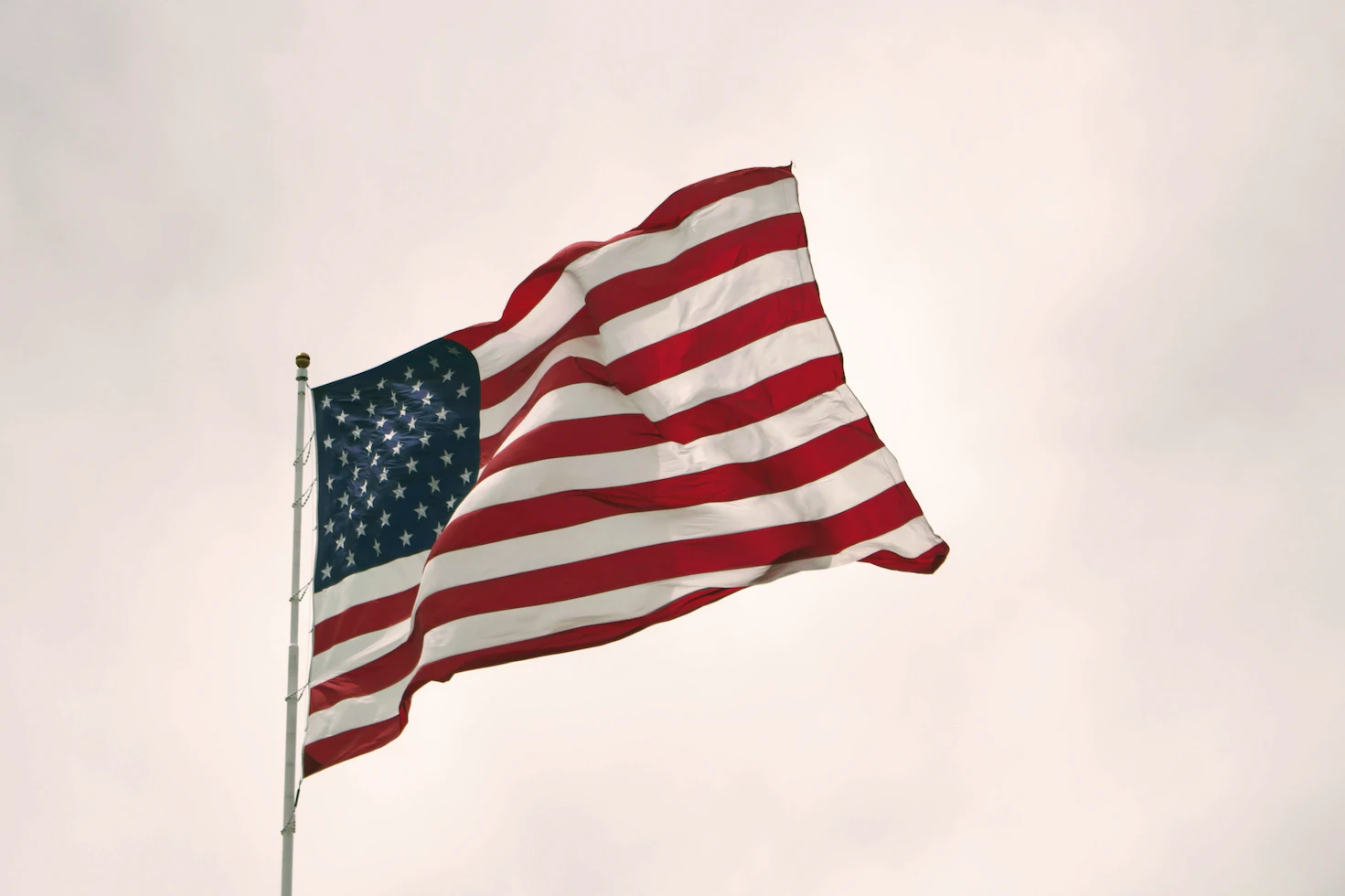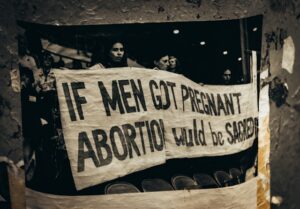The separation of church and state has been a political framework in the United States since its creation. Yet, we see countless examples of how these two aspects of culture bleed into each other daily. From the “under God” in the Pledge of Allegiance to your grandparents sharing pictures on Facebook that depict Jesus holding the American Flag, church and state seem less separated than ever before. But, this isn’t new. Politicians didn’t just start publicly claiming to be Christian nationalists overnight.
Where it all began
The United State’s close relationship with Christianity began before the country’s inception. It began with the Mayflower Compact, signed by the Puritan Separatists and extremists that left England in 1620.
“Having undertaken for the Glory of God, and Advancement of the
Mayflower Compact, 1620
Christian Faith… do by these presents, solemnly and mutually in the Presence of God and one of
another, covenant and combine ourselves together into a civil Body Politick”
Statements such as this one were used to portray the colonists as elevated by God with a Holy mission to honor and spread his influence- a sentiment that has continuously followed the United States.
The ’50s and ’60s
Concepts like “manifest destiny” encouraged the theft of land, and anti-communism inspired the inclusion of “under God” in the Pledge of Allegiance. God and country were so intertwined in U.S. citizen’s minds the uptick in fundamentalist viewpoints in political conversations during the 1950s and 1960s didn’t phase many.
Then, the political-religious landscape changed forever in America during the 60s with Pastor Jerry Falwell.
A christian nation?
Jerry Falwell initially had no intentions of getting into politics. Fundamentalist Baptists typically kept themselves isolated from the outside world, and that included the political sphere. But, as Falwell witnessed the passing of Roe v. Wade, IRS tax changes that forced Christian schools to desegregate and pay taxes, and liberal theologians sharing anti-war ideas, he decided that he had to do something in order to encourage political change.
Falwell felt very strongly about the United State’s place in God’s plan. According to him, the establishment of the country was a holy event carried out by godly men. In reality, the founding of the nation was a largely secular event that included no mention of God in the Constitution. While many of the founding fathers could be considered Christian, some of them were also quite Deist in their beliefs. This meant they believed in the presence of a God who was not too interested in intervening with their creations.
To provide further evidence of the United State’s secular construction one could reference the Treaty of Tripoli. This was signed by the United States under the Adams administration in 1796 and firmly stated in Article eleven that the United States of America was not in any way a Christian nation.
The christian right voting block
But Falwell didn’t let this truth cloud his mission. He needed to turn fundamentalists into a powerful voting block to force the government to acknowledge their beliefs. He put on his I Love America rallies in which he preached at state capitals about the greatness of America in ways that could be considered idolatry.
In 1979, he founded the Moral Majority, a political group that advocated for the Christian right. In God’s Right Hand, Michael Sean Winters outlines the group’s four key values. The group was pro-life. They were pro-family, meaning they opposed LGBTQ+ rights. The group considered themselves pro-moral, which they decided meant anti-pornography and anti-drug. They also decided they were pro-American, meaning they were anti-communist.
Just in time for the 1980 presidential election, the Moral Majority had convinced conservative Christians of all denominations to work together to bring home a win for the religious right.
Divine terminology
The amount of religious terminology used by U.S. Presidents remained steady for the majority of the country’s history. It wasn’t until the 1980’s with Ronald Reagan’s presidency that references to God sharply increased. It is no surprise when one considers that the Moral Majority helped Reagan get elected through their efforts to unite conservative Christians. Despite Reagan not being much of a churchgoer himself, he assured the evangelicals he would fight for their values.
Since Reagan, the president with the highest rate of religious language in their speeches was Donald Trump. Similarly to Reagan, Trump seemed to use Christian references to gain support from the Christian right. His less-than-godly history did not seem to phase his devote supporters. According to Stereotypes, Politics, and Religion in the American Bible Belt, 1960-2019,
“Even though many positions taken by Trump and supported by his base of voters violate important parts of Jesus’ teachings, especially his teaching of compassion and empathy, overturning past Supreme Court decisions and winning the culture wars might be all Evangelicals need to convince them their support of Trump has been in accord with God’s will.”
Robert P. Ericksen (Stereotypes, Politics, and Religion in the American Bible Belt, 1960-2019)
Christianity has played a substantial role in the formation and evolution of United States culture and politics. The Republican party in particular has been greatly influenced by religion and has continued to develop extreme ideas based on it. From the separation of church and state to the public endorsement of Christian nationalism, there have been a lot of changes in a short period of time. These changes are enough to concern any politically informed citizen about the direction the country may go next. The majority of U.S. citizens don’t want religion and government to interfere with each other. However, the two have been so closely linked it is hard to notice the signs of growing extremism.
Check out:
The ‘New Normal’: Climate Change and Its Link to Canada’s Worst Wildfire Season







Be First to Comment